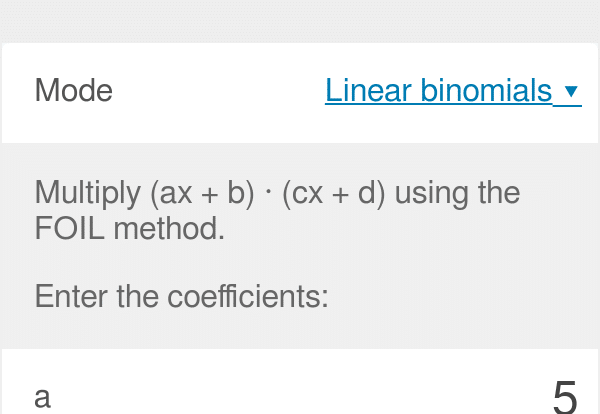
While studying may seem like an obvious practice to many students, there are times when you feel like your efforts do not yield any significant results. Good study skills ensure you achieve the desired outcomes throughout the process. Being properly coordinated and prepared is key to studying well for exams, regular assessments, projects, or other academic engagements.
So, have you ever wondered why you study but still do not perform as expected? There could be myriad reasons for this outcome, all of which can be narrowed down to your study habits and devotion. In addition, you might realize that some of the study habits and procedures you effectively employed in high school do not work in college, and those utilized in college are ineffective in advanced learning. Therefore, studies should be tailored according to an individual student’s needs, among other vital factors.
Every student has unique learning abilities and potential. Thus, it is crucial to determine what approaches, habits, or ways work best for you while studying. Such an understanding guarantees that the time allocated for the study is well capitalized and the concepts learned are retained and adequately consolidated in the brain.
Learning how to study well is an ongoing process rather than a one-off endeavor. Some students find it relatively easy to study, while others experience significant difficulties that render the process a little bit harder. Thus, the answer to studying well is primarily based on your willingness to constantly refine your study competencies and skills to comprehend and familiarize yourself with techniques that work best for you.
Studying Well
Being capable of studying well plays a significant role in a student’s life. It helps you stay confident and motivated, knowing that you are always prepared. Furthermore, it helps reduce anxiety, frustration, and stress, often associated with the lack of proper organization and preparation. For instance, you are more likely to feel stressed if you do not study well for evaluations, tests, or presentations.
What does studying well comprise? Is it any different from reading? These million-dollar questions are vital in understanding how to study well. Thus, studying well can be considered as the active engagement with learning materials, significantly differing from reading, which is simply reviewing texts or taking notes. The latter results in easy forgetting, while the former increases the chances of retaining and memorizing materials.
Read on to discover exciting habits, ideas, and ways to help you study well. Then, review them, determine which works for you, and master them to make your learning process more manageable and boost your performance in school.
How to Study Well and Fast
While there is no particular procedure for studying well and faster, some tips work for all students despite their different learning abilities.
Spacing Out
Embracing a distributed learning practice is one of the most effective practices that can help you study well. It entails studying over several short periods in a day or week instead of spending prolonged sessions in a particular study setting. Spacing out improves the brain’s ability to retain and consolidate more materials.
The short study bursts are more effective as they allow you sufficient time to take a break and build up your strength. For instance, for every 45 minutes of study, you should consider resting for at least 10-15 minutes before resuming the process. In addition, unlike long study sessions, spacing out studying over short periods improves concentration, leading to better memory retention and enhanced learning.
Avoiding Distractions
Constant distractions during study sessions attract procrastination, leading to a lack of effective learning. Interferences can range from significant factors, such as noisy surroundings, social media, and friends, to trivial matters like chewing gum. Therefore, knowing what distracts you comes in handy in eliminating them and creating a conducive environment for studying.
Constantly improve your studying space to suit your learning preference and desired outcomes since distractions are present in all learning settings, including class and home. For example, avoid studying at home and opt for healthy alternatives, such as the community library, if you know that you can easily be distracted. Similarly, turn off your phone, refrain from sitting with friends, and avoid overly too loud music if such factors distract you.
Embracing Intensive Studying
Being intense is a faster way to study well. It entails getting more work done within a shorter period compared to lengthy studying. For instance, during a 45 minutes learning session, you can equally distribute the time to study the course materials intensely and undergo a self-test before taking a short break to recharge. This technique is relatively rewarding as it is an active strategy that boosts the intensity and effectiveness of studying.
Seeking Assistance
Studying alone can be hectic. As a result, it potentially hinders effective learning and the realization of desired outcomes. However, you can consult friends, peers, or teachers for advice and study help to resolve underlying challenges during your free time. Seeking assistance from knowledgeable individuals makes learning more interesting as they help you avoid constant anxiety, frustrations, and stress which result from poor study habits.
In addition, you can seek assistance from professional essay writing services. For example, CustomWritings, among other online academic writing companies, offers personalized help in various academic fields, including writing essays, research, and reviews. Services provided by such websites are of high quality, papers written from scratch by expert writers in the USA and worldwide. Moreover, you can request tutors in different fields for guidance throughout your course, increasing your potential to study well.
Using Visual Aid
The use of visual aid is one of the most effective ways to enhance the memory of learned concepts. In other words, pictures create a lasting mental model, which is good for students’ understanding of learning materials. Therefore, while studying, you should pay significant attention to diagrams and graphs as they boost your memory. In instances where the study materials lack pictures or any imagery, it is advisable to deeply analyze the concepts to create a mental image instead of merely attempting to cram or record notes. Also Read – How to Calculate Economic Profit: Definition & Formula
Creating a Study Plan
Although it may seem obvious, creating and following a study schedule or plan is a significant challenge among most students. Yet, its rewards are unparalleled if adhered to correctly. It is very likely to assume that every student has a plan until you realize that the majority do not have control over their schedule. Determine your priorities, take charge of your calendar to study well, and stay in complete control of your coursework.
Creating a schedule and sticking to it helps you to space out your study. In addition, planning and being organized presents you as a competent student capable of regulating their habits and ways to study well.








